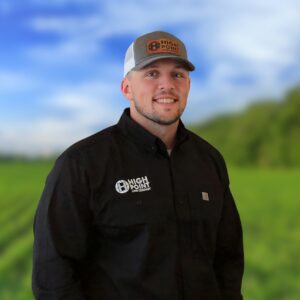You Inherited a Farm – Now What?
 Trevor Glomski
Trevor Glomski
IA – MN – WI Land Specialist
Inheriting a farm can feel overwhelming. Especially so if you’ve never dealt with land ownership or bought or sold for an extended period of time. Whether it’s been in your family for generations or came as a surprise, it’s important to approach the next steps thoughtfully to protect your interests and maximize the value of the asset. So you inherited a farm – now what? Here’s a practical guide to help you start strong.
Step 1: Gather and Update Key Documentation
First, you’ll need to gather and update key documentation. You’ll need the death certificate and an updated deed that reflects your name or your family’s name. This step is crucial for legal ownership and will be needed for most decisions moving forward. Many times the family member or individual gifting the asset has worked with an attorney to plan for this succession, and they will be crucial to understanding.
Step 2: Establish the Farm’s Basis
Next comes establishing the farm’s basis, which plays a major role in how taxes are handled down the road. For most cases, the basis is determined by either a timely sale after the inheritance or a date-of-death appraisal. In Minnesota and Wisconsin, it’s common to order a retrospective appraisal to document market value at the time of passing. In Iowa, depending on family goals and timing, a sale within a reasonable window can help set the basis. Every state trends a little differently, so it’s worth consulting with a local expert early in the process.
From there, you’ll want to get a clear understanding of what you own and any obligations tied to it. This includes reviewing property lines, any recorded easements, current lease agreements, government programs like CRP or EQIP, potential liens, and deed restrictions. These details affect both the value and the sale process.
If you suspect the farm’s current value is higher than your inherited basis, take the time to consult a CPA to estimate your capital gains exposure. Having a strong handle on the tax side will help you plan more effectively and avoid surprises later. This is a good problem to have, and depending on the market temperature in your area values can be much higher given the liquidity, number of operators around the farm, and timing of 1031 buyers looking to identify.
Step 3: Meet with a Qualified Land Agent
Meeting with a qualified land agent is the next major step. A knowledgeable agent like an agent with High Point Land Company will help you uncover the full potential of the property. Does any of the land have development potential? Are there building credits tied to the acreage? Could a portion be subdivided? What’s the condition and value of any structures, such as homes, grain bins, barns, wells, septic systems, or utility access? Every acre can contribute differently to the overall value, and your agent should help you evaluate each one.
From there, your agent can guide you on the best sale method. That could be a traditional listing, a sealed bid auction, a timed online auction, or a live public auction. Each strategy has its strengths depending on the property’s size, location, and buyer demand in your local market.
Once all the key professionals—your attorney, CPA, appraiser, and land agent—have provided their insight, it’s time to evaluate the best course of action. A great land agent, CPA, and attorney will help tie it all together and walk you through each box that needs checking, from legal to financial to marketing and sale execution. If the timing isn’t right for your family having the relationship with a company like High Point will assist in areas such as farm leasing strategy to maximize income, improvement suggestion, and any land projects that will increase the desirability of your asset.
Selling inherited land is one of the biggest decisions you’ll make. With the right team and preparation, you can make sure your family’s legacy is honored and the value of the farm is fully realized.
Do you want to learn more?
If you’re considering buying, selling, or managing land, reach out to a local High Point Land Company Agent. For more questions visit our YouTube Knowledge Center.
Native of Southeast Minnesota, Trevor Glomski, grew up on the Mississippi River enjoying the great outdoors. Trevor’s greatest love is walleye fishing, bowhunting whitetail in the Midwest and chasing elk out west. Recently, Trevor has been in commercial construction project management, and is now excited to bring his skills and work ethic to High Point Land Company providing a great experience for buyers and sellers of land. If you are looking to buy or sell a farm in Western Wisconsin, Eastern MN, or Eastern Iowa, or have questions about the current market, he would love to connect with you. Contact Trevor at 651-380-0821 or 319-389-0431 or email Trevor@highpointlandcompany.com.